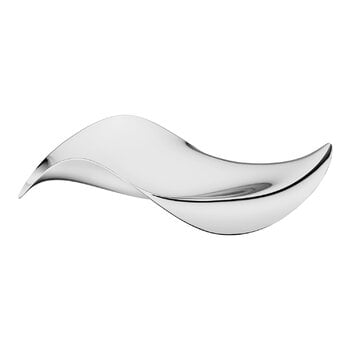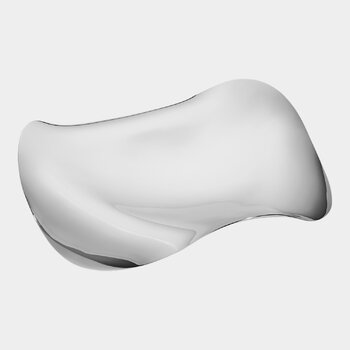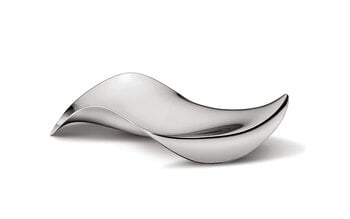Georg Jensen’s Cobra tray catches the eye with its free-flowing form, making it an impressive serving bowl or decorative element.
Designed by Constantin Wortmann, Cobra collection is characterized by a swerving, dramatic appearance, and its strong curves create an impression of fast movement. Just like actual cobras, the members of the Cobra collection are imposing, striking and bold. With its mirror-polished steel surface and dynamic design, Cobra is a true design classic that adds a dramatic element to any interior.











